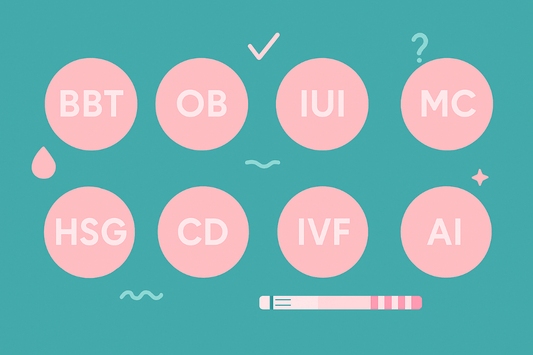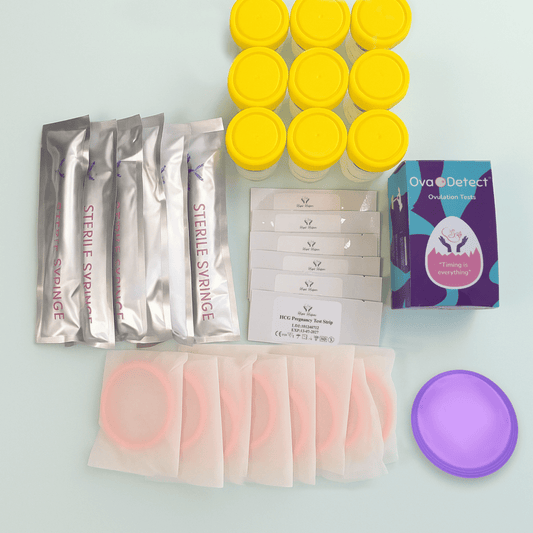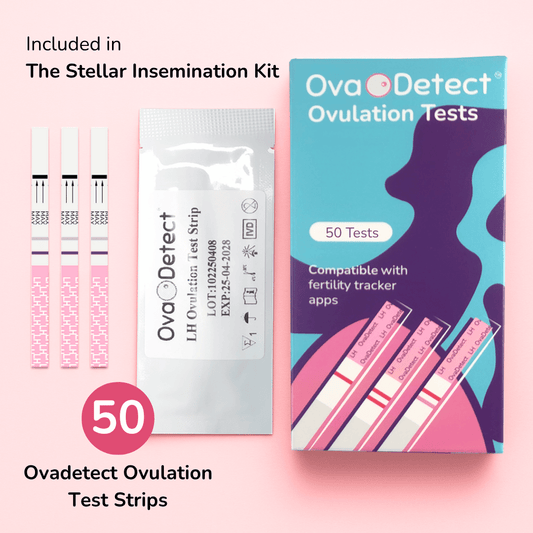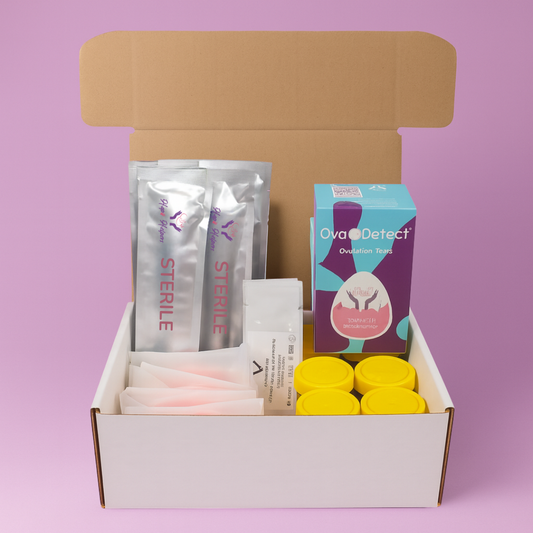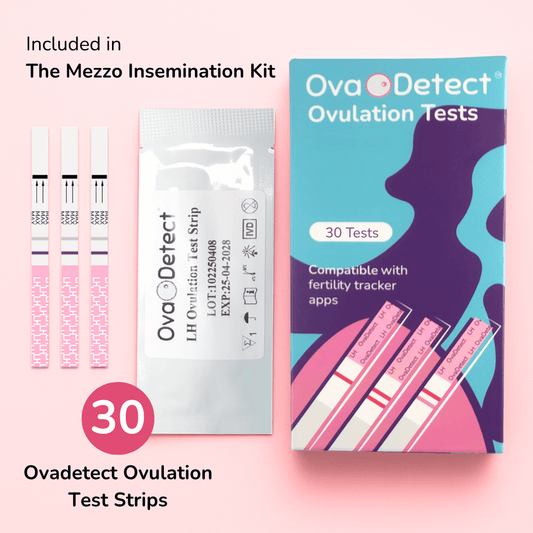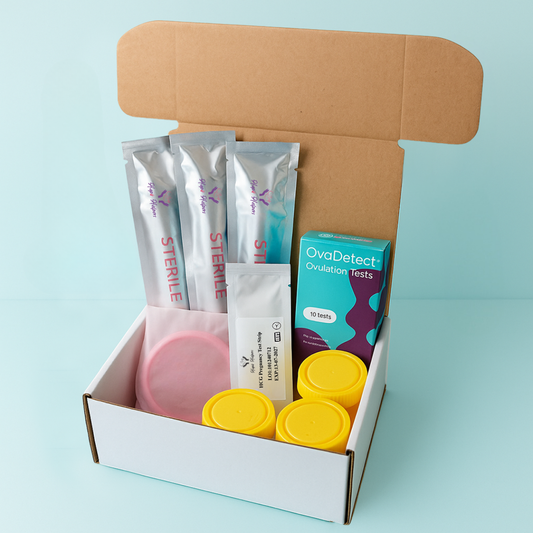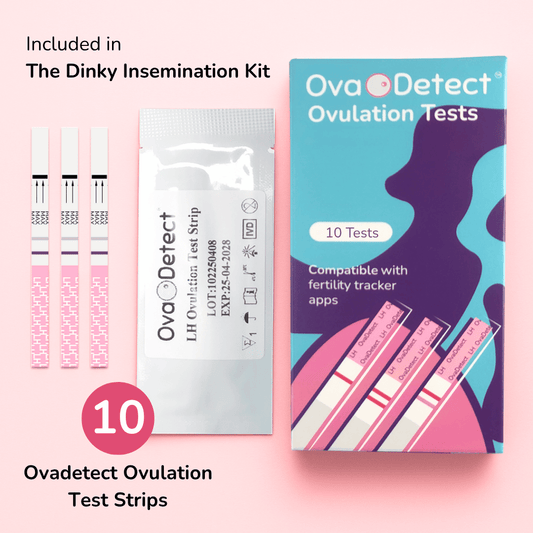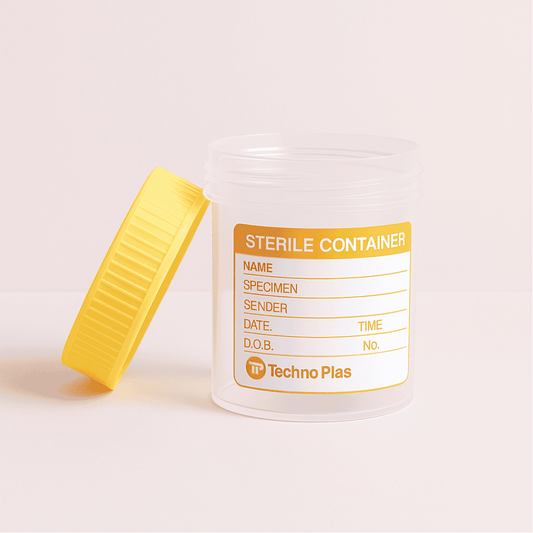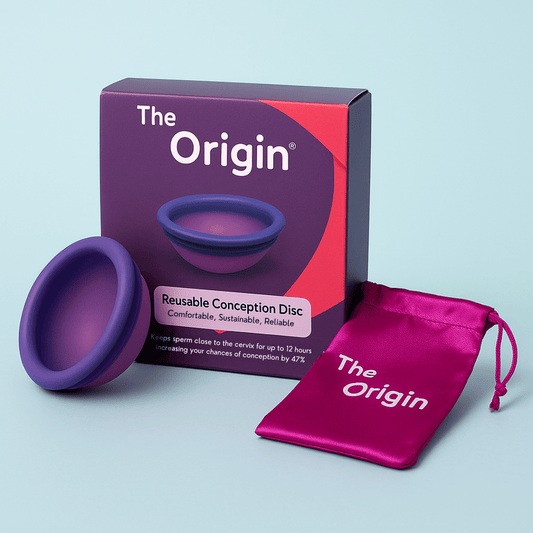Things to Consider Before At-Home Insemination
Thinking about trying at-home insemination? Before diving in, there are some important things you’ll want to know. From choosing the right method and donor, to understanding legalities and future impacts for your child — being informed now can save you heartache later. This blog lays out the key considerations to help you start your journey with clarity, care, and confidence.

What to Consider Before At-Home Insemination
Before beginning the journey of at-home insemination, there are several important factors to consider. First and foremost, it’s essential to understand the process thoroughly and, where possible, seek guidance from a healthcare provider or fertility expert. Choosing a sperm donor—whether known or from a sperm bank requires careful thought, and comprehensive health screenings should be conducted to ensure safety and compatibility.
Timing is critical, so tracking ovulation and using appropriate tools and techniques can significantly increase the chances of success. Creating a calm, supportive, and stress-free environment can also contribute positively to the experience.
It’s important to manage expectations - at-home insemination may not lead to immediate results. Patience, emotional resilience, and access to support are crucial throughout the process. Lastly, having a backup plan, such as consulting a fertility specialist if conception does not occur after several attempts, can help individuals and couples feel more prepared and empowered.
By taking these considerations into account, those pursuing at-home insemination can approach the process with greater confidence and clarity.
Methods of conception
There are 3 methods of at-home insemination:
Artificial Insemination with a syringe
Natural insemination via sexual intercourse
Partial insemination, which is just ejaculation in the vagina.
All of these methods are just as effective as each other. Don’t let anyone tell you otherwise, and don’t let a donor pressure you into doing something you are uncomfortable with. If you are considering natural insemination, please make sure you understand the legalities around this method on our legalities page
Understanding the Risk of Incest When Choosing a Donor
When selecting a sperm donor, it’s important to consider the potential long-term implications, including the risk of inadvertent incest. A donor who has fathered a large number of children increases the likelihood that genetically related individuals may unknowingly meet and form relationships, potentially resulting in severe genetic abnormalities in offspring.
To mitigate this risk, many countries and fertility clinics have established limits on the number of families per donor. In South Africa, for example, a sperm donor may contribute to a maximum of 12 live births. These guidelines are designed to protect future generations and maintain ethical standards in donor conception.
Donors who operate outside of these established limits, often donating through informal or unregulated channels, are commonly referred to as serial donors. Choosing a donor who adheres to regulated family limits is essential for ensuring safety and reducing the risk of unintended genetic relationships in the future.
Understanding the thoughts and feelings of donor-conceived people (DCP)
When undergoing at-home insemination with a donor, the child you produce is known as a DCP. As recipient parents (RP), we must understand them and hear what they have to say so we can make the necessary changes to avoid the common struggles they face. I didn’t even think of this when I was looking to conceive. This only occurred to me when my children were born. This is why I am creating awareness, so no one else has this as an “afterthought.”
I have written a page on this, including the survey results from DCP people. I highly encourage you to check it out here
Know the legalities
Buying or charging for sperm in South Africa is illegal. A donor can charge you to cover their travel and expense costs. This amount needs to be reasonable and enough only to cover those expenses. Please check the legalities page for more info.

If you don't know where to start, talking with a TTC consultant can help! Book a FREE 15-minute virtual consult today!
Book a TTC consultation


